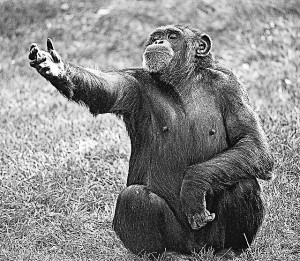 As our population increases and humanity begins to outgrow our earthly home, we see skyrocketing environmental degradation.
As our population increases and humanity begins to outgrow our earthly home, we see skyrocketing environmental degradation.
It’s everywhere, and varies greatly in severity and scope, with issues ranging from soil erosion and desertification to the acidification of the oceans, along with everyone’s favorite buzzwords “climate change.”
One of the biggest problems people have with remedying these issues is that they cost a great deal of money.
For example, coal scrubbers on coal stacks filter out a significant amount of dangerous particulates to protect the environment (not to mention us). This is done to prevent the spread of lead and other dangerous particulates that are harmful to the environment as well as to you and your family.
In many cases where the cost of action is great, the cost of inaction is even more costly. In fact, a history of putting off fixable, yet expensive, environmental issues is the reason why they are so expensive; problems become more severe with time, and therefore become more difficult to remedy.
In many ways, history repeats itself. It is not for some metaphysical reason, but simply because we, as a species, have an uncanny ability to find comfort in the familiar. We choose to make the same choices as the generations before us. Our desire for the same life that our parents had has severely stunted our potential for change and growth. Essentially, we have become an exclusively reactive species as opposed to a proactive one, following the tried and true philosophy of “if it ain’t broken it don’t need fixing.”
Benjamin Franklin once said that no one would ever know the true value of water until the well ran dry. This is true in that no one knows the value of water until it is gone. Those final days and weeks before it’s gone show who really controls the well and how impressively it can be regulated.
A similar situation is happening in our world today with the continued drilling and refining of crude oil. One of the driving factors behind why we still use a stagnant source of fuel today is because with a diminishing supply, crude becomes exceedingly easy to regulate and control. Even though there are better and more efficient fuels such as hydrogen engines, we have been convinced that our only salvation to drive to work and to work farms is in the ideal “drill, baby drill.”

With evolving technologies like wind turbines in the ocean, hydroponics, solar panels, algae (yeah, Google it), it is surprising that we are not investing more capitol in changing our lifestyles to be more sustainable.
Now, I am not saying that everyone is an evil menace to the environment, and that all humans are maliciously destroying our world. I definitely like listening to my music, watching some Game of Thrones, and enjoying our own summertime savior, air conditioning.
I am not saying that we should eliminate all of the things that we do. I am simply advocating that we make our lives as efficient as possible for the betterment of both humans and the environment; especially to say that all of tools that we will need are already right in front of us. All we need now is the will and gumption to act — plain and simple.
If you chose to stay in a burning building because it’s more familiar than the streets outside, you’re going to burn up.